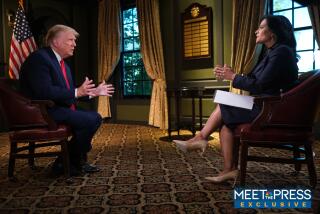Presidential Election
- Share via
I was a supporter of Dukakis and had hoped that his belated enthusiasm and populist appeal during the final two weeks would put him over the top. That was not to be. But even in defeat, Dukakis conceded gracefully and without self-pity, and by his words, set a tone for national reconciliation and good will toward Bush. However, I am not so sure that one can feel as charitably toward the press.
Aside from Dukakis’ 25-point slide in the polls over the four-month period between his nomination in Atlanta and the November elections, the greatest disappointment in this campaign was the coverage on radio and television, and, to a lesser extent, in newspapers and magazines. It was impossible at times to separate 30-second sound bites from commercials. Even the inane questions asked during the second presidential debate reflected inability by the panel of reporters to distinguish myth from reality and information from entertainment. There are no two ways about it; the media still have not adjusted to the age of electronics and learned how to avoid being manipulated by slick operators like Jim Baker and Lee Atwater.
As Bush media guru Roger Ailes unabashedly told CBS’ Mike Wallace, the press seems far more interested in “pictures, polls, mistakes and attacks” than in issues that really matter. How right Ailes is! And no wonder the voting public stayed at home in near-record numbers this year. An enlightened electorate should be the media’s foremost obligation to the American people.
Maybe 1992 will finally see that happen.
HAROLD N. BASS
Northridge
More to Read
Get the L.A. Times Politics newsletter
Deeply reported insights into legislation, politics and policy from Sacramento, Washington and beyond. In your inbox twice per week.
You may occasionally receive promotional content from the Los Angeles Times.










